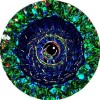Posted 20 May 2013 - 09:02 PM
Hi, so recently I posted a thread for the custom map I'm trying to make. There didn't seem to be much interest in the matter, but I still need help on it and did not want to triple post in a dead-ish thread.
I have several different locations that are randomized and put into a table. For each location I need an "incoming" , "outgoing" , and "available" table that I can access after the locations have been randomized.
Example:
Now I want to access the different corresponding tables for the randomized values. I need to move random things from the "available" table for Stop2 to the "outgoing" table for Stop2 and the "incoming" table for "Stop1."
Is there an easy way to do this and what's the best structure/method for doing so? I've been trying for a while to figure it out on my own and from help I received last week in my project thread (Located here). I just can't get it and I'm kind of discouraged at this point… I apologize for any inconvenience, I'm only a newbie programmer and this is the biggest project I've taken on so far, probably too big for my skill level… :unsure:/> If anyone likes the idea, I'm definitely okay with including you in the project and giving credit where credit is due! I could really use some help on this one.
I have several different locations that are randomized and put into a table. For each location I need an "incoming" , "outgoing" , and "available" table that I can access after the locations have been randomized.
Example:
Locations = { "Stop1", "Stop2", "Stop3", "Stop4", "Stop5" }
-- Randomize but only select a given number. Let's say only choose 3 different options.
Table = { "Stop2", "Stop1", "Stop3" }
Now I want to access the different corresponding tables for the randomized values. I need to move random things from the "available" table for Stop2 to the "outgoing" table for Stop2 and the "incoming" table for "Stop1."
Is there an easy way to do this and what's the best structure/method for doing so? I've been trying for a while to figure it out on my own and from help I received last week in my project thread (Located here). I just can't get it and I'm kind of discouraged at this point… I apologize for any inconvenience, I'm only a newbie programmer and this is the biggest project I've taken on so far, probably too big for my skill level… :unsure:/> If anyone likes the idea, I'm definitely okay with including you in the project and giving credit where credit is due! I could really use some help on this one.


